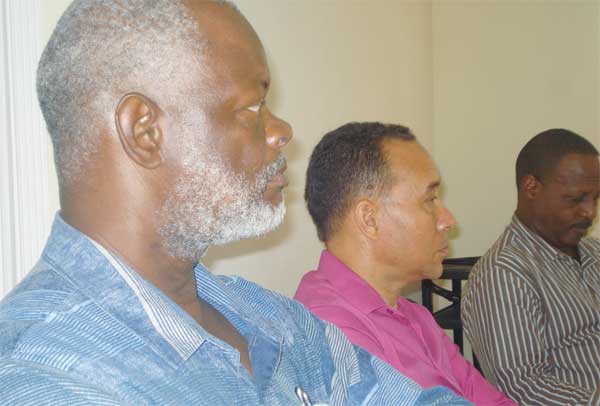
DURING a recent visit to Antigua, the newly appointed Governor of the Eastern Caribbean Central Bank advised the Antiguan Government to institute a debt ceiling and a cap on state payroll in an effort to reduce its present Debt to GDP ratio of 92 %. He went further to advise that Antigua should embrace fiscal responsibility legislation which makes it law for a government to live within its means. Such legislation I assume, he was involved with when Grenada moved to enact such law. Only Grenada and Anguilla has such legislation in the Caribbean. In the case of Anguilla, it was imposed by the UK.
The ECCB has been pushing from the days of Sir Dwight, that all ECCU Member States should aim for the GDP ratio of 60% by 2030. From what we have seen over the last forty years of governance within the Eastern Caribbean, the only way we can begin this journey to fiscal responsibility is to enact legislation. It is only in that environment will creativity and innovation reach the Cabinet rooms of our region. We live in an era where there is a crisis of ideas.
In the case of Saint Lucia, we can begin by fixing our Debt ratio in a two tier approach. For the first five years it is fixed at 2013 Debt Ratio of 79% and at the end of that five year period the primary surplus should be 5 % of revenue. The next five years is again given fixed targets. So my first challenge to the political parties in this election season, is to place fiscal responsibility legislation in your manifesto to demonstrate your commitment to bringing this looming disaster under control.
The crisis of ideas is vividly expressed in a recent report by the Commonwealth Secretariat entitled: Achieving a Resilient Future for Small States – Caribbean 2050. The authors have projected that Saint Lucia will have a Debt Ratio of 150%, and that unless there is a seismic shift in approach we will suffer significant socio-economic degradation. I again would strongly advise our political parties to take a read of this document and to shape policy presentations to the people based on the research done by these experts.
This seismic shift must also occur in the discussion of ideas. It is shocking to read the commentary on social media, the low level of thought, the absence of research, the shallowness of the discourse. I have also stopped listening to some of the talk shows less I be de-educated in the process. Just maybe we need a re-emergence of a St Lucia Forum in its original and pure form. For historical record, George Odlum was not a founding member of the Forum. The founding members were HilfordDeterville, Primrose Bledman, Cyril Landers, Peter Josie and Tom Walcott. This movement launched on 24th October 1969, almost 50 years ago, was an important think-tank within the society.
So what is this seismic shift of policy that the Commonwealth Secretariat’s Report has proposed? The policy shift involves increasing productivity, moving to enhance export growth, increasing youth employment by enhancing their skills, fiscal reform, extracting local creativity and innovation, accountability and transparency in governance and research and development.
We need to look in the mirror and admit that the Universal Secondary School Education experiment has been a dismal failure. We need to accept that a child getting 0% in Maths at Common Entrance Exam will have great difficulty understanding the mathematical concepts of sets and subsets in Form 1. We need to extract that child’s creativity at that young age, which may not be academic, but that child may become the best fashion designer in the region. Leaving that child in that academic environment for 5 years is brutally wrong.
We need to ensure that when the Auditor General produces a report, that good governance would suggest that the recommendations are followed and that the cases of malfeasance that are unearthed are dealt with swiftly and that every effort is made to recover the State’s funds.
We need fiscal responsibility legislation to hold all parties to a level of discipline when in governance and that election goodies become a thing of the past.
We need to accept that the present structure of our tourism sector is no different from the plantation economy that existed during slavery. Our under-development will continue if we do not engage in a seismic shift also in that sector.
We need political parties to be truthful to the populace and say that it cannot be business as usual and that we all as one society need to move quickly to ensure that our children have a bright future.







Laws are only effective when they have teeth and when they bite those who ignore them. There are countless laws that have simply ignored by successive governments. Are our Integrity laws being enforced? No! Are the annual financial reports of statutory corporations tabled before Parliament? No! Are our Development Control laws being enforced? No! As a matter of fact, the Government and the CCC are the worst offender. So what makes you think fiscal discipline laws will be observed?